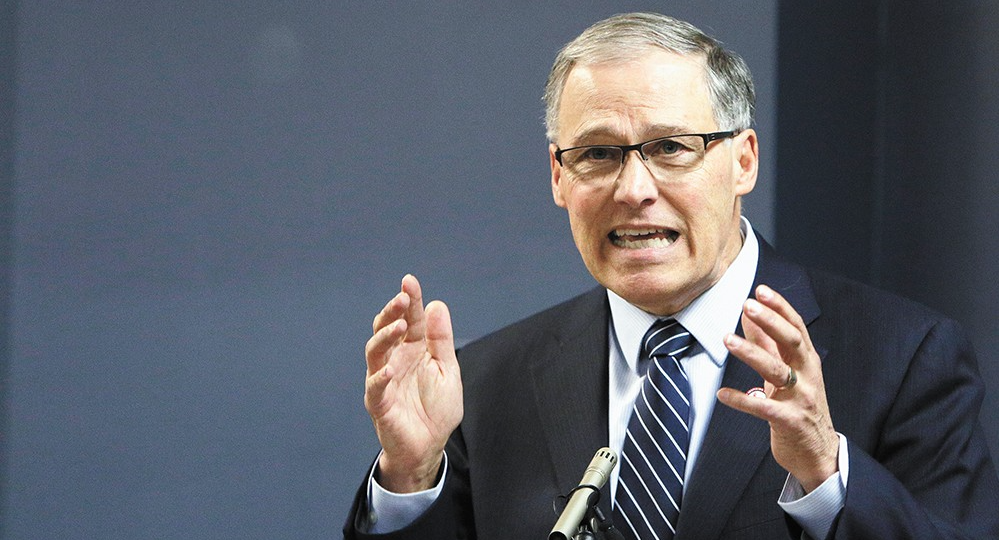|
“What goes around, comes around” when it comes to industrial waste
Firms large and small are experimenting with “circular” methods to reduce waste, reuse byproducts, and even recapture profits. Several companies in Washington state are helping grow the circular economy, and the governor recently visited the Nordic countries where he saw how some of their businesses are putting circular methods in practice. In Helsinki, Finland, heat from Microsoft servers helps warm local homes. When it comes to industrial waste, one company’s trash might just be another’s treasure.
Drivers, carmakers, and states are leaving fossil fuels in the rearview mirror. Is Washington ready to drive electric?
The future of car travel in Washington state will be electric, but is the state’s infrastructure ready? Is the grid ready? Will charging be accessible? Will EVs create jobs? Gov. Jay Inslee’s senior climate advisor Anna Lising has answers for many common questions about electric vehicles and infrastructure.
Insurance coverage approved to help doctors facing criminal charges for providing legal abortions
The Washington State Insurance Commissioner has approved coverage requested by the largest medical malpractice insurer in the state to reimburse medical provider policyholders for expenses incurred defending against criminal charges for providing legal abortion care. Abortion is legal in Washington state and it is expected that many out-of-state patients may seek abortion care here. Some states have threatened to take prosecutorial action beyond their borders against physicians that offer legal abortion services.
U.S. Department of Commerce invests $2.8 million to develop workforce in Klickitat County
Klickitat County was awarded a $2.8 million grant to develop an aviation maintenance training facility at the Columbia Gorge Regional Airport, and to improve infrastructure at the site. The investment will be matched by $700,000 in local funds and is expected to create 70 jobs, retain 53 jobs, and generate $6 million in private investment. The grant was awarded by the U.S. Department of Commerce Economic Development Administration.
“Washington’s aerospace and aviation industry has a long history of providing jobs in counties all across our state, from engineers and pilots to machinists and inspectors,” said Gov. Jay Inslee. “I appreciate the EDA’s support for the community’s efforts to train and employ more people looking for a good-paying career in aviation.”
Department of Revenue encourages Washingtonians to claim lost funds
Many Washingtonians have unclaimed money waiting for them to collect. Banks, utilities, insurers, government agencies, and businesses are occasionally unable to contact someone to whom they owe funds or property. If property remains unclaimed for three years, it is turned over to the Washington State Department of Revenue (DOR). DOR hosts a service that allows people to search for unclaimed funds and property. Washingtonians may visit claimyourcash.org, provide basic information, and find whether property is due to them.
Inslee honors lifesaving heroes at Industrial Safety and Health Conference
Seventeen workplace heroes were honored on Sept. 28 during the Governor’s Industrial Safety and Health Conference in Tacoma. Among the award winners were three workers who helped put out a van fire along a highway and save the occupants; two public utility workers who rescued a person stranded in the snow; a counselor who administered Narcan to save a youth home resident who overdosed; and several workers who performed CPR or used an automated external defibrillator to save lives.
State ferries to WA youth: “Welcome aboard for free!”
Passengers 18 or younger may ride Washington State Ferries for free beginning Saturday, Oct. 1. Free youth transit ridership was a focus of this year’s Move Ahead Washington transportation package. The law directs transit agencies to provide free fares for passengers 18 and under across the state. Free ferry ridership applies only to youth riding as a passenger in a vehicle or walking aboard a state ferry – it does not include teenagers behind the wheel of a motor vehicle. Drivers under 19 years old will continue to pay the adult vehicle and driver fare.
Inslee activates four members of the Washington National Guard to assist Florida hurricane response
Gov. Jay Inslee activated four members of the Washington National Guard on Sept. 29 to support Hurricane Ian response efforts in Florida. The Washington National Guard members will help address communications and power outages resulting from the hurricane.
Dangerous winds and floodwaters have caused grave damage to communities in Florida, Georgia, and South Carolina. The storm is ongoing and continues to threaten life and property. At the time of its landfall, it was the fifth-strongest hurricane on record to affect the contiguous United States.
|









